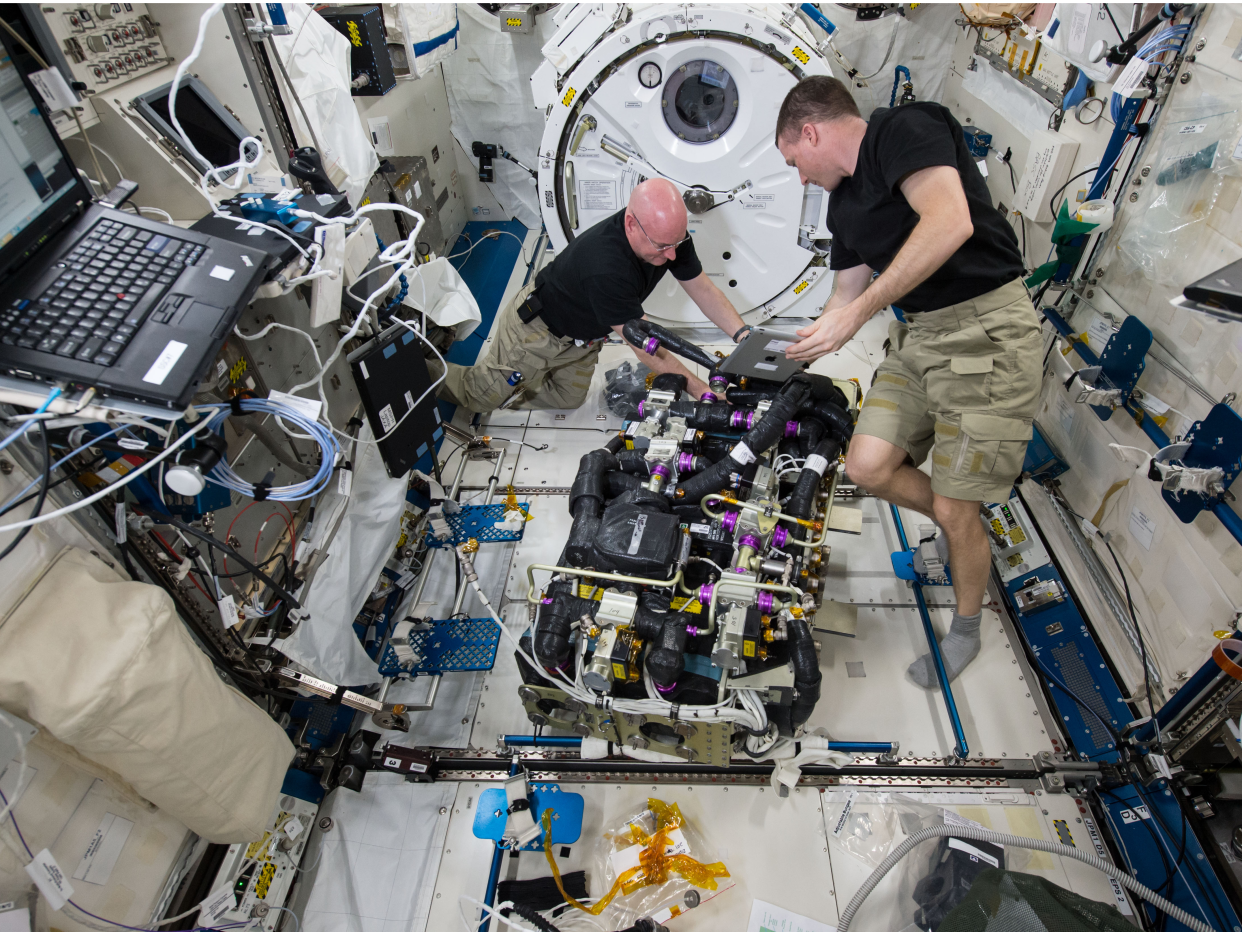Drug-resistant bacteria are found on the International Space Station

Strains of drug-resistant bacteria have been found in the toilet on the International Space Station – and researchers say they need to be studied in case they pose a threat.
esearchers at the Jet Propulsion Laboratory, California Institute of Technology, USA investigated five strains of Enterobacter that were isolated from the space toilet.
Drug-resistant bacteria were also found on the exercise platform inside the space station, the researchers said.
Researchers compared the strains to Enterobacter found on Earth – and found they were similar to three newly found strains on Earth.
MORE: Former Brexit Secretaries Dominic Raab and David Davis awarded joint prize for best resignation
MORE: London letting agent ‘demanded money from prospective tenants to view properties’
Dr. Kasthuri Venkateswaran, Senior Research Scientist at the Jet Propulsion Laboratory Biotechnology and Planetary Protection Group and the corresponding author of the study said: “To show which species of the bacteria were present on the ISS, we used various methods to characterize their genomes in detail.
‘We revealed that genomes of the five ISS Enterobacter strains were genetically most similar to three strains newly found on Earth.
‘These three strains belonged to one species of the bacteria, called Enterobacter bugandensis, which had been found to cause disease in neonates and a compromised patient, who were admitted to three different hospitals (in east Africa, Washington state and Colorado).’
Dr. Nitin Singh, first author of the publication said: ‘Given the multi-drug resistance results for these ISS E. bugandensis genomes and the increased chance of pathogenicity we have identified, these species potentially pose important health considerations for future missions.
‘However, it is important to understand that the strains found on the ISS were not virulent, which means they are not an active threat to human health, but something to be monitored.’

 Yahoo News
Yahoo News 

